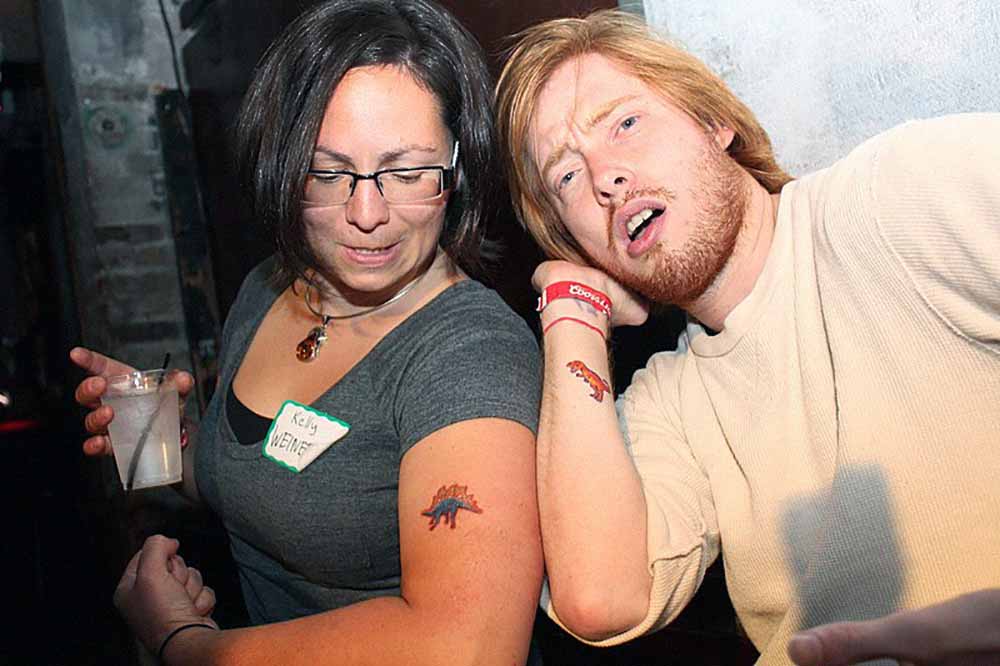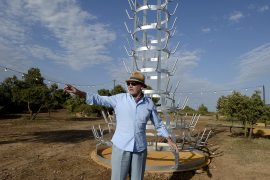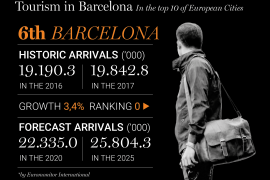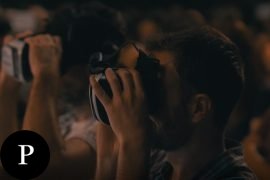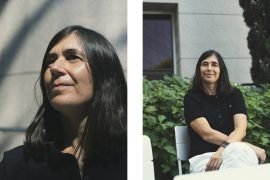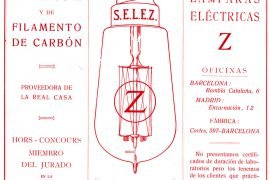[dropcap letter=”T”]
he science book of the year in the United States is Soonish (Penguin/Random House). It narrates a trip to the future linked to the scientific innovations that imagine the Weinersmiths, a couple of nerds. Kelly is an associate professor in the bioscience department at Rice University (Houston), a well-known researcher with publications in leading scientific journals, such as Science and Nature, a famous scientific disseminator in media such as National Geographic or BBC World, as well as presenter of one of the most followed podcasts in the United States, called Sience… sort of. And Zach is known for his webcomic Saturday Morning Breakfast Cereal, where he combines comic and science, since he is a trained physicist and a professional cartoonist.
The nerd journalist who signs these lines has enjoyed and learned reading this ingenious book, about which she has had the privilege of talking, during this particular elevator pitch between nerds that we share at The New Barcelona Post:
In your book you state that your nerd pride was at stake. What do you think of the fact that media such as The Wall Street Journal or Popular Science consider it the best science book of the year in the USA?
Pretty flattering! However, the nerd’s pride depends on the opinion of a small group of obsessive nerds. As the obsessive nerds seemed satisfied with the book (or at least they did not stalk us with emails containing corrections!), we feel that our nerdy pride is intact.
Throughout the work you refer to the lack of resources to make certain scientific advances come true. Is money a key factor that prevents the “future” from becoming reality?
Yes, but it is more complicated than just money. This is a part of why it will be very difficult to get an elevator to the space. The ideal materials are very long molecules, very strong and very, very light. These molecules are extremely expensive to manufacture, and are likely never to become cheap, unless some aspect of their production is valuable to a certain market. For example, if each car were manufactured with long carbon nanotubes, that would reduce the price of them, which perhaps would give us the material to build a space elevator cable. We believe that something like that is more likely to create a space elevator than, say, spend a large amount of tax money on a scientific agency to build space elevators.
Unfortunately, many of the crazy geniuses we interviewed did not have a dark side, but were intelligent, physically attractive and rich. Life is unfair.

The ancient Egyptians invented the folding stool but never built an IKEA; the Greeks created complex gear systems, but never made an adequate clock… Is there something similar in our case, that we may have an important discovery closer than what we really know?
It is difficult to predict! Ryan North wrote a wonderful book called How to Invent Everything: A Survival Guide for the Stranded Time Traveler that talks about this kind of thing. He points out that to make a compass, you only need a piece of string and a bit of a magnet. It could have been made by a Neanderthal! It is very possible that there is an incredible advance that we could have made 100 years ago, that we simply did not notice.
You confess in the book that you spoke with several “crazy professors” to gather information, and that you love them. What is their attractive side?
It’s hard to say, maybe we’re attracted to the idea that genius has a downside, as if saying “maybe she’s smarter than me, but she’s also weird!”. Unfortunately, many of the crazy geniuses we interviewed did not have a dark side, but were intelligent, physically attractive and rich. Life is unfair.
If we act to improve the world, science will help us; if we act to make the world worse, science will help us there too

In science, you explain that what seems to be complicated may be easy, and what seems easy is actually difficult. Examples?
Often, when we investigate a topic, our opinion is overly informed by popular science and by the misconceptions we have in our brains. For example, running a fusion reactor on your desk is relatively easy, although, of course, it will not be a good way to boost your home, since it consumes more energy than it generates. On the other hand, something that seems easy and is quite difficult is to land on asteroids. In the movies, astronauts simply park their spaceships on gigantic solid rocks. Actually, that would be much harder. Asteroids provide very little gravity. If it does not latch on to the asteroid, it will simply bounce and return to space. As a matter of fact, it’s even worse than that: asteroids are often “piles of debris”, made of small rocks and dust, instead of solid rock or metal. So, you’re trying to land on something that has almost no gravity, and that breaks every time you touch it. It is not an easy task, though we discussed some possible methods in the book.
What would you like to invent?
We would love a brain-computer interface that would allow to read books more quickly.

So would I! And could we have a better world thanks to science?
Science can make life easier, science can give us more options, and science can even say “if you want to get something good out of life, this is the best way”. But science cannot tell you what is right in life. Is it better to be happy or free? Is it better to live a great life or achieve a great feat? Is it better to have a life of leisure or a life of struggle? These are questions for philosophy and for the individual. That said, we can all agree that, for example, a new cancer drug or a new way to stop malaria are objectively “better”. However, most scientific discoveries can make life better depending on how we use technology. In short, if we act to improve the world, science will help us; if we act to make the world worse, science will help us there too.

